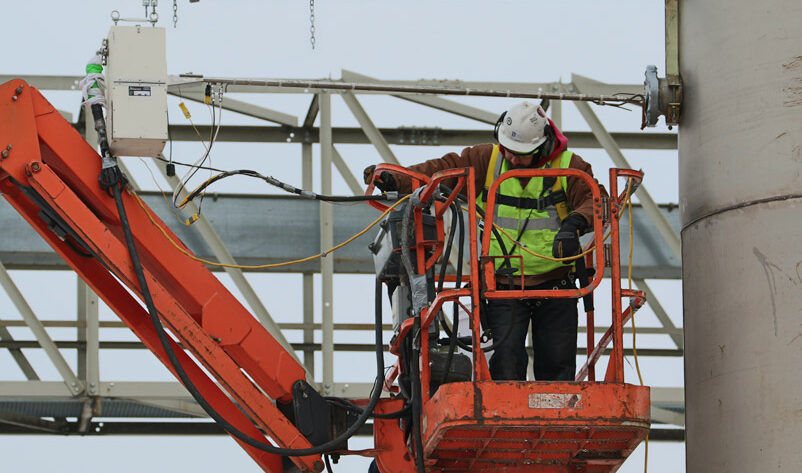EN 14662 Benzene and Aromatics in Air Emissions Testing
The European Standard EN 14662 provides a robust framework for measuring benzene and aromatic hydrocarbons in air emissions. This standard is crucial for ensuring compliance with environmental regulations, particularly in sectors like oil & gas, petrochemicals, and refineries where the release of these pollutants can have severe consequences on human health and the environment.
The primary focus of this service is to analyze air emissions to detect benzene and aromatic hydrocarbons. This analysis helps facility operators understand their environmental footprint and take necessary measures to mitigate risks associated with non-compliance. The testing process involves collecting air samples, preparing them for analysis, using advanced spectroscopic techniques such as Gas Chromatography-Mass Spectrometry (GC-MS), and adhering strictly to the prescribed methodologies outlined in EN 14662.
The service includes a comprehensive suite of tests designed to meet the stringent requirements set by regulatory bodies. These tests not only help in meeting compliance but also provide valuable insights into the operational efficiency and environmental impact of industrial processes. The testing is particularly relevant for industries that are under scrutiny due to their significant contribution to air pollution.
The results from these analyses can be used to inform strategic decisions regarding process optimization, emission reduction initiatives, and overall sustainability efforts. By leveraging this service, clients gain a competitive edge by ensuring they remain at the forefront of environmental best practices.
To ensure accurate and reliable results, the laboratory adheres strictly to EN 14662 guidelines. This includes using calibrated instruments, trained personnel, and rigorous quality control measures. The testing process is designed to be repeatable and reproducible, which enhances confidence in the data generated.
The service also offers a range of support services that complement the primary testing function. These include consultation on best practices for minimizing emissions, recommendations for improving air filtration systems, and training sessions for clients’ staff members to enhance their knowledge and skills in environmental compliance.
By investing in this service, organizations can demonstrate their commitment to sustainability and regulatory adherence. The results not only provide peace of mind but also contribute positively towards the overall health and well-being of communities surrounding industrial facilities.
| Applied Standards | Description |
|---|---|
| EN 14662:2007 | This standard specifies the method for measuring benzene and other aromatic hydrocarbons in air emissions from industrial processes. |
| ISO 14001:2015 | Absolutely referenced for environmental management systems to enhance compliance and sustainability efforts. |
The service is designed to cater to the specific needs of various stakeholders within an organization, including quality managers, compliance officers, R&D engineers, and procurement personnel. These professionals can benefit from detailed insights into how this testing aligns with broader corporate goals and strategic initiatives.
Applied Standards
- EN 14662:2007 – Specifies the method for measuring benzene and other aromatic hydrocarbons in air emissions from industrial processes.
- ISO 14001:2015 – Aims to provide an international framework for environmental management systems, ensuring compliance with legal requirements and enhancing operational efficiency.
The laboratory ensures that all tests conducted are in strict adherence to these standards, thereby providing accurate and reliable results that can be trusted by clients.
Quality and Reliability Assurance
- Calibrated instruments for consistent and repeatable measurements.
- Dedicated staff trained in the latest methodologies to ensure precision during sample preparation and analysis.
- Rigorous quality control measures to validate each step of the testing process.
- Continuous monitoring of performance against established benchmarks.
The laboratory’s commitment to quality is reflected in its robust internal processes that are designed to minimize errors and discrepancies. Clients can be assured that the results they receive are accurate, reliable, and reflective of real-world conditions.
Competitive Advantage and Market Impact
The ability to accurately measure benzene and aromatic hydrocarbons in air emissions provides a significant competitive advantage. Clients who invest in this service can differentiate themselves by demonstrating leadership in environmental responsibility. This not only enhances their reputation but also opens up new opportunities for business growth.
In addition, compliance with standards like EN 14662 is increasingly becoming a differentiator in the market. Companies that can prove they are meeting or exceeding regulatory requirements may find it easier to secure contracts and attract investment from environmentally conscious stakeholders.
The service also supports broader corporate sustainability goals by providing actionable data on emissions levels. This information can be used to drive strategic initiatives aimed at reducing environmental impact, thereby contributing positively to the global effort against climate change.





